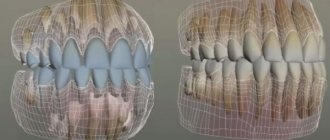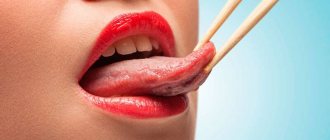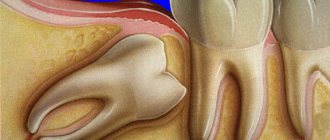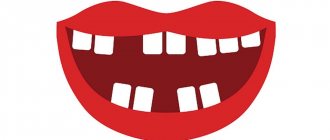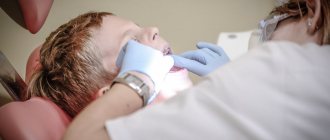What are the causes of tooth itching, what to do if the teeth of an adult and a child itch? If you know exactly what triggers the symptom and undergo all the necessary research, the doctor will be able to develop an effective treatment regimen, and as a result the patient will forget about the problem.
Knowledge about the directions of therapy at home is not enough, because it is much easier to prevent the occurrence of itching sensations, rather than trying to cope with them with medication or using traditional recipes. By following simple preventive rules, you can prevent many dental diseases.
Itchy gums in an adult: reasons
The most common factors causing unpleasant symptoms:
- violation of the integrity of soft tissues due to prosthetics;
- allergy;
- dental and oral diseases;
- chronic pathologies of internal organs and systems;
- deficiency of vitamins and minerals;
- bad habits (smoking, alcohol abuse); stress, nervous shock;
- colds, infections;
- medical errors during medical procedures.
Damage
If the dentures are just installed, itchy pain in the teeth and gums is possible - the itching itself appears due to the inconvenience when the structure scratches soft tissues and injures the mucous membranes.
In addition, injuries are caused not only by orthodontic and orthopedic devices, but also by eating too rough food, brushing with too hard bristles, and using toothpicks.
At the edges of the jaws, the problem arises due to the eruption of “eights”. The crown does not come out immediately, but gradually, and patients most often experience persistent inflammation.
Manifestation of an allergic reaction
One of the reasons why the teeth of the lower jaw, as well as the upper rows, itch and itch in adults is allergies. Allergens are mainly played by various hygiene products (pastes, mouthwashes), which contain flavorings and preservatives. Medical ointments applied to fix prostheses also provide similar effects.
Sometimes the problem is caused by the removable or non-removable structures themselves, namely the materials from which they are made (nylon, acrylic). Unpleasant symptoms also appear when wearing braces.
When an allergic reaction is to blame, other signs also appear:
- redness;
- pain;
- swelling.
In this case, it is recommended to avoid contact with the allergen and take an antihistamine. To prevent complications, a mandatory visit to the doctor is indicated.
Diseases of the oral mucosa
If your teeth and gums itch and ache, this may be caused by dental and other pathologies. The following diseases act as provoking factors:
- Periodontal disease, periodontitis. Periodontal tissues become inflamed and destroyed, followed by loosening and loss of teeth. According to statistics, about 15% of patients with similar ailments experience itching.
- Gingivitis. The soft tissues and interdental spaces become red, swollen, bleed and hurt.
- Candidiasis. Fungal infection is accompanied by the appearance of a dense layer of whitish plaque. In this case, the sick person constantly experiences unpleasant sensations in the mouth.
- Stomatitis. Painful ulcers bring many problems; their formation does not go unnoticed.
- Leukoplakia. The upper epithelial layer thickens and becomes whitish or gray in color. There is a burning sensation and other discomfort in the oral cavity.
There are other diseases that can lead to pathology. They have similar symptoms, so only a doctor can make a final diagnosis. In this case, with a high degree of probability, not only a visual examination will be required, but also other research methods (x-ray, flora smear, orthopantomography, etc.).
Acute deficiency of vitamins and important microelements
If the body receives an insufficient amount of essential substances, this negatively affects the condition of the mucous membranes. There is a feeling that the teeth are very itchy, as if the soft tissues are very inflamed.
First of all, the fibers weaken, they become looser, itchy, and bleed. If the situation is advanced, loosening and loss of dentition in whole or in part cannot be avoided.
Not all components affect the gums to the same extent. Some of them play a vital role, and their deficiency affects all structures. This mainly concerns zinc and vitamin C.
Nervous system disorders
Similar symptoms are often observed in neurotic disorders. Depression, stressful situations, severe mental shocks affect physiological processes in the human body. The oral cavity also suffers.
Dentists often encounter cases where a particular pathology occurs against the background of temporary or permanent deviations associated with the psyche and certain events in the patient’s life that disrupt the usual routine.
Dental diseases
If you think about the most common reasons why teeth itch in a teenager or an adult, the first thing that comes to mind is diseases of the incisors, canines and molars, as well as other problems associated with them. Common factors:
- Accumulation of a large amount of plaque on the enamel, subgingival deposits, tartar. This occurs due to poor-quality hygienic care or due to disruptions in the gastrointestinal tract or endocrinological pathologies.
- Bruxism. The jaws involuntarily clench and squeak during sleep. The top hard layer is noticeably erased.
- Initial caries, pulpitis, characterized by a sluggish course. In this case, unpleasant itching appears in the area of the affected units.
The same signs are possible with poor quality therapy or after extraction. This indicates the occurrence of complications and requires contacting a doctor.
Why does the tooth under a filling itch?
After applying the filling material, individual intolerance sometimes occurs. In addition, allergic reactions appear, expressed by redness, swelling, and itching. If the symptom does not go away or gets worse, it is important to see a dentist as soon as possible.
When dental treatment is not performed correctly (for example, not all of the carious area is removed), over time the affected tissues begin to rot and decompose, causing infection. If discomfort appears, a complete replacement of the filling is indicated. If pathogenic microorganisms have managed to penetrate the pulp by this time, you cannot avoid depulpation.
"Age" features
Itchy sensations can occur at any time. This is due to various reasons, depending on whether a child or an adult suffers from unpleasant manifestations. Let's consider the main cases typical for certain categories of patients.
Itching in childhood
This is one of the most common signs of milk eruption. In infancy, babies cry a lot, are capricious, pull various objects into their mouths, and sleep poorly. Parents may notice excessive swelling of the mucous membranes of the oral cavity, a change in color to reddish or even bluish. After a certain period of time, white stripes appear on the fabrics. This means that the incisor is coming to the surface and will soon appear entirely.
Older kids complain about similar things. This means that the first bite is replaced by a permanent one. Moms and dads should not ignore this process; it is important to involve a specialist so that he can observe whether everything is happening correctly. If the slightest deviation from the norm is detected, the doctor prescribes the necessary diagnostic tests and develops treatment tactics.
When does the symptom appear in adolescents?
If the problem affects a person during adolescence, this indicates the development of a pathological process. In this case, you cannot do without a thorough diagnosis and medical examination. Often we are talking about hidden inflammation inside the gums or teeth. The sooner therapy is started, the faster it will be possible to get rid of the problem and avoid various complications.
Itching and scratching are often observed when installing braces. This happens both immediately after installation and as a result of a planned correction of the tension force of the metal arc.
As an adult
Provoking factors in older patients can be anything. More often it is smoking, excessive alcohol consumption and other bad habits, allergies to filling materials and prostheses, crowns. In some cases, the cause may be inflammation of the soft tissues, as well as diseases such as gingivitis, stomatitis, periodontitis, glossitis.
Often, men and women experience neurological disorders that lead to itchy sensations. With mental stress, bruxism (grinding in sleep) sometimes occurs.
When the orthopedic design is not selected correctly, it scratches the gums and tongue. The same applies to the installation of crowns and fillings, which cause discomfort of varying severity.
Tooth itching during pregnancy
Women expecting a baby experience a whole range of unusual and sometimes unpleasant symptoms. In more than 50% of cases, expectant mothers experience gingivitis and bleeding gums. This is due to both changes in hormonal levels and a lack of certain substances in the body (for example, calcium), which in large quantities are used to ensure the normal functioning of the fetus in the womb. The enamel and hard tissues become thinner, and hyperesthesia appears.
Sometimes the symptom is associated with emotional stress. A pregnant woman is very worried about her baby, and constant stress, as we know, does not entail anything good. As a result, pathological processes such as caries, periodontitis, and pulpitis are diagnosed.
Every woman during pregnancy should be checked by a dentist. In no case should oral diseases be ignored and therapy avoided. There are many safe but effective interventions that do not harm the child.
Reason three. Bruxism
It comes in two types: daytime, when a person involuntarily clenches his teeth while awake, and nocturnally, when the disease manifests itself exclusively in sleep. Constant tension in the teeth in the case of bruxism is also accompanied by headaches in the morning, increased sensitivity, chips and cracks in the tooth enamel, when a person cannot remember the exact reason for their formation. It is important to understand here that you cannot get by with treatment from a dentist alone; you must definitely seek advice from a neurologist to find out the cause of such tension.
Itchy teeth - what to do
The fight against symptoms involves the use of not only pharmaceutical drugs, but also traditional methods, if it is not pronounced and is not caused by serious systemic pathologies. For this reason, it is first recommended to consult a therapist, dentist or other specialist.
Mild inflammatory processes can often be relieved with herbal decoctions based on chamomile, oak bark and other natural ingredients. Some patients prefer rinsing with a simple water solution of soda and salt. The number of ingredients, proportions and dosages should be advised by a physician.
Drug treatment
Medicines are prescribed exclusively by a doctor. Self-medication is strictly contraindicated. If you try to solve the problem yourself, the risk of complications and a significant deterioration in well-being increases.
Medical tactics are directly dependent on the diagnosis:
- For allergic reactions, antihistamines are indicated. However, it is first important to identify the true allergen and get rid of it, eliminating contacts.
- Sedative medications are prescribed for prolonged stress and nervous exhaustion.
- When a fungus appears (for example, with candidiasis), the affected surfaces are treated with antiseptics, and antifungal creams and tablets are used internally or externally.
- For stomatitis, antiviral medications cannot be avoided.
- At the beginning of the inflammatory process, plaque, stone, food debris, and purulent discharge are removed from the teeth in advance. Only after high-quality professional cleaning is it possible to treat with antiseptic solutions and take non-steroidal drugs.
- If the symptom is caused by ARVI or a cold, it is worth acting on the main lesion. After it is eliminated, the swelling and itching sensations will go away on their own.
- When, due to an unpleasant manifestation, it is impossible to sleep normally and lead a normal lifestyle, decongestant gels and ointments with a mild analgesic effect are prescribed (Metrogil Denta, Cholisal, etc.).
Preventing itching
By following medical recommendations, you can forget about the problem for a long time, even if it has already arisen. To prevent a pathological condition, it is necessary to take good care of the teeth and mucous membranes, eat right, lead a healthy lifestyle, treat dental diseases in a timely manner, and worry less. Infants and pregnant women, who are most susceptible to diseases due to insufficiently strong immunity and hormonal characteristics, deserve special attention.
How to get rid of unpleasant feelings?
You should not self-medicate, as incorrectly chosen tactics and the use of inappropriate drugs can cause complications of the disease.
Preparations for relieving itching
Depending on the provoking factor, the following treatment methods are used:
- To eliminate allergic irritation, antihistamines are used.
- Sedatives help relieve symptoms of stress disorder. After normalization of the nervous system, unpleasant signs disappear.
- Non-steroidal and antiseptic agents are prescribed for the treatment of dental diseases.
- Candidiasis is treated with antifungal drugs.
- If the soft tissues under the filling itch, it is replaced with a new one.
- Anti-inflammatory drugs and antiseptics are used to treat colds.
Preventive actions
Knowing the reasons why teeth itch and ache (front teeth, as well as canines and molars), you should follow simple tactics to prevent the problem, and then you won’t have to think about treatment options:
- Observe hygiene rules. Even daily brushing in the morning and evening is enough to prevent many dental diseases.
- The diet must include foods that enrich the body with nutrients. The menu should also include food that improves blood circulation in the gums (apples, carrots).
- It is important to minimize the consumption of chocolate, confectionery, and baked goods. It’s better to stick to “natural sweets” (fruits, berries).
- It is preferable to rinse your mouth every time after eating. Both special products sold in stores and home-prepared decoctions of herbs and other plants are suitable.
- Visit the dentist regularly, promptly treat pathological processes, remove plaque and tartar.
Before deciding what to do if your tooth itches and your gums itch, you need to accurately determine the triggering factors. In some cases, the pathologies are not serious and can be eliminated with herbal remedies; sometimes the patient is indicated for long-term drug therapy. Regardless of the cause, if itching occurs, it is important to consult a doctor. High-quality diagnostics and timely measures help prevent irreversible consequences.
Chronic gum disease
One of the reasons why your gums may itch is the presence of catarrhal gingivitis. This disease is also accompanied by the following symptoms:
- bleeding gums when brushing teeth;
- cyanosis or redness, swelling of the gums adjacent to the teeth;
- the occurrence of bad breath.
Itching in the gums can occur due to periodontitis. In this case, the same symptoms appear as with gingivitis, as well as the following:
- exposure of tooth roots;
- tooth mobility;
- suppuration from periodontal pockets, etc.
Up to contents

